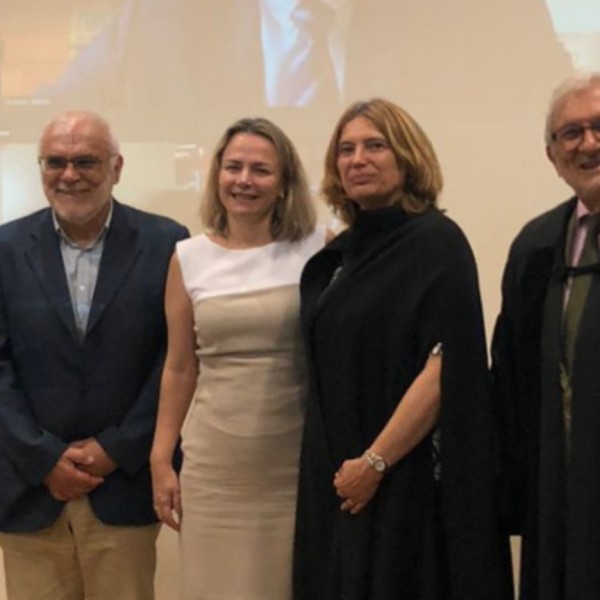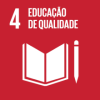
Educational Management and Enhancement of the Academic Profession
Research analyzes relationship between teacher management and organizational citizenship behaviors
Sustainable Development Goals (SDG)

The study demonstrates that faculty members working at Brazilian higher education institutions show greater commitment to behaviours of collaboration, loyalty and proactivity when they perceive clear institutional policies of professional recognition, according to a thesis defended in the Doctorate in Education at CeiED/Lusófona University.
The research, developed by Marcelle Rossi de Mello Brandão, analysed data from 386 faculty members from public and private institutions, proposing a model that relates faculty administration policies and practices to pedagogical and scientific competences, as well as to organisational citizenship behaviours (OCB) — spontaneous and positive attitudes that go beyond the formal role of faculty, such as helping colleagues, proposing improvements and representing the institution well.
The main finding shows that the more the institution invests in continuing education, good working conditions, research incentives, professional recognition and fair performance evaluation, the greater the expression of competences and behaviours that contribute to educational quality. “The data confirm that strategic management of faculty not only forms better teachers but also fosters a more collaborative and innovative organisational culture,” explains the author.
Conducted between 2022 and 2024, the research used advanced multivariate analysis techniques, such as Exploratory Factor Analysis (EFA) and Structural Equation Modelling (SEM), to test the relationships among 36 variables grouped into six institutional factors, two competence dimensions (scientific and pedagogical) and five behavioural factors related to OCB. The thesis also proposes a recontextualisation of human resource management in higher education, inspired by metaphors such as “critical nodes” (representing the complex and often contradictory challenges of academic management) and “neural networks” (emphasising the importance of connections between actors and policies).
“The recognition of the teaching profession in the 21st century demands an approach that overcomes fragmented practices and seeks coherence between institutional policies and the meanings that faculty attribute to their work,” states Marcelle.
By integrating approaches from management, organisational psychology and education, the study offers valuable insights for rectors, educational managers and public policy makers interested in promoting the recognition of teaching work in times of transformation and uncertainty.
Related Courses
Other News
- Doctorate addresses a new possibility for the “Museum as Social Technology”
- Interventions in Building D - Prohibitions on Space and Surroundings
- ULusófona hosts Conference on Architectural and Urban Environments
- Jacinto Godinho's film among the finalists for the 2025 Gabo Award
- ULusófona professor participates in exhibition at the Portuguese Navy Museum










